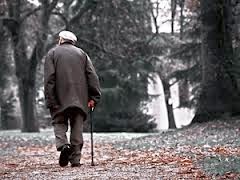“I’m so glad I’m talking with you today,” Rose stays, starting immediately. “I had this awful dream last night and it’s haunting me. The specifics are kind of vague at this point, but the feeling it left me with is very clear - horror. And it was like a horror movie or something out of a scary sci-fi movie, neither of which I ever watch. So it was like this force, not sure what the force was – people, aliens, I don’t know. I don’t know that I ever saw any particular thing or person, I guess that’s why I call it a force - that was going around and doing something to people so that they looked like their whole body had been burned and like instantly turned to ash and dissolved. Ugh! It makes me shudder just to think about it. And I guess I was going around trying to avoid this thing, but also to warn people, people I knew and cared about, that they were in danger. I think I had a better idea when I first woke up who some of those people were, but now I’d just be making it up. I keep shaking my head wanting that image of people dissolving into ash to go away.” She takes a breath. “So what do you think?”
“I can certainly understand how disturbing a dream it was,” I say, impressed with how Rose has managed to convey her horror so well over the telephone. “What are your thoughts?”
“I don’t know. I was watching this TV show that had a cancer patient in it last night and it struck me how he seemed to be being eaten up from the inside out.”
Silence.
“I just keep feeling the horror.”
“Where does that feeling take you?”
“The horror? I guess the horror of the pandemic, of how many people have died. Oh! I guess that could be the force, the unseen virus, killing all these millions of people.” Pause. “But I wonder why I’d have the dream now. Things do seem to be getting better, at least for us. I’m vaccinated, most of the people I love and care about are vaccinated. Why now?”
“You said you thought there were specific people you were trying to save. Even if you have to make it up, who do you think some or one of those people were?”
“My mother comes to mind. She’s been dead for over 10 years now. She had a long life, almost 100 and she was pretty good until the last few years. She was ready to go. That made it easier for me, although it was still hard losing her. Painful, but not horrifying.”
Silence.
“What are you thinking about?”
“First I was thinking about this article I read about how deaths to overdose have skyrocketed during the past year. That feels like another force taking over people, especially young people. But then I ended up
someplace entirely different. I was thinking of the horror of growing up in my house, of my parents screaming and screaming at each other, of us cowering in the corner waiting for my father to start beating up on my mother or turning on one of us. He was definitely a force to be reckoned with, although he was a specific person, a tangible force, not a sci-fi character.”
“Maybe that made him even more scary. You couldn’t just turn off the TV.”
“That would explain why I was trying to save my mother. I was always trying to save my mother and feeling awful that I couldn’t.” Pause. “But still, I don’t know why I’d be dreaming about this now. This is an old story. Why now?”
Silence.
“Any thoughts about people being turned to ash and dissolving?”
“Cremation. Lots of cremations during the pandemic.” Pause. “The Holocaust. That was certainly a force of evil. Hitler, the gas chambers. But it doesn’t seem to be about that either. It felt more contemporary, like right now.”
“All right. Right now, what’s horrifying you, scaring you, threatening you?”
“Aging. I turn 65 next month. I know that’s not old these days, but I worry about aging, about who will take care of me if I’m ill or incapacitated in some way. And I suppose death itself feels frightening, the unknown, the aloneness. Death is a pretty scary, menacing figure. You think that’s what the dream’s about?”
“It’s certainly possible. And it’s also possible that it’s about all the things you’ve talked about today.”
“I suppose.”
“What are you feeling now?”
“Definitely not as horrified. Talking about it made it less scary. I feel more removed from it, like it’s something to look at and to figure out.”









